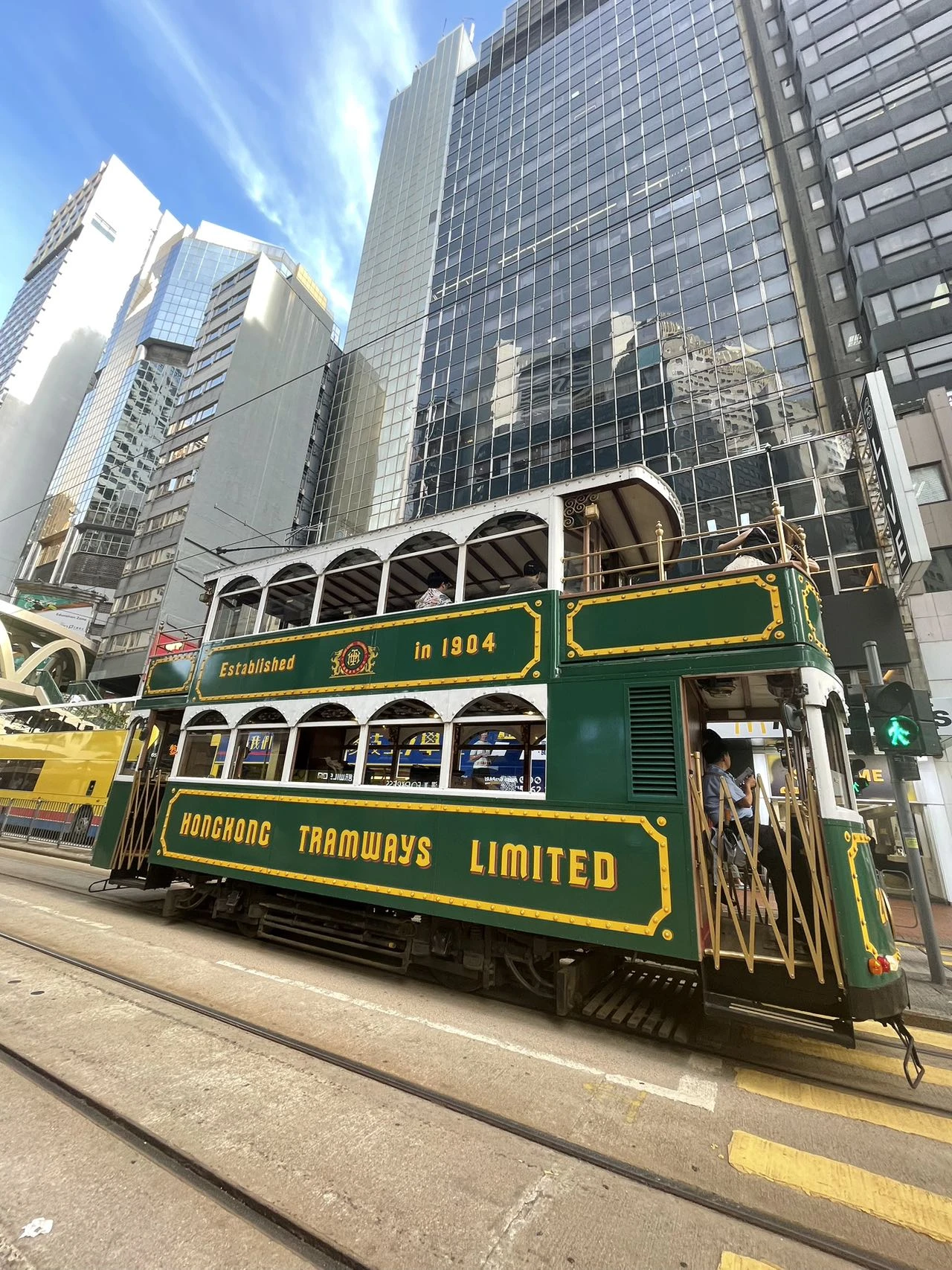Mainland Boba Lover in Hong Kong
By: Xiyuan Lin

My fellow GRIP intern, Donna, and I visited Starfish Bay, a beach near my apartment. We didn’t see any starfish—only small crabs.
“Nei hou…(Hi)?” I gave an awkward smile in front of Milksha, a boba shop near The OPEN Classroom, “WeChat Pay da mu da(Is WeChat Pay ok)?”
It was lunch break during the first week, and as a boba enthusiast, I had been struck by the variety and prices of the ubiquitous boba shops throughout Hong Kong. From Good Smell Lemon Tea Co. near my apartment to Lady Bobo, Mi Xue, and so much more near my workplace, I’ve been trying a new boba place almost every day. The best part—unless you add more than 3 toppings, they are never over $6 US dollars.
However, buying boba is often challenging because I don’t know Cantonese. Having been born and raised in Fuzhou, China, I share the same ethnicity with Hong Kong people. From asking for directions to adding modifications to food when I eat out, I tried to sign out my thoughts or speak in slow English. I would often be met with Cantonese, confusion and blank stares, or heavily accented English that I couldn’t comprehend.
Therefore, when I ordered boba for the first time, I struggled to make the bobarista understand my order. I wanted to try Milksha’s top seller, taro milk with mochi and taro balls; I pointed to the menu, hoping they would understand, but they followed up with questions in Cantonese. In a panic, I let the next person in line go before me and moved to the back of the line. After typing my order in Google Translate and more signing, a customer who spoke English rescued me and helped me get the drink. We chatted a bit while we waited for our orders, and that was the first person I connected with outside of work.

Still, my Cantonese is far from adequate; however, with every boba order and restaurant experience, I’ve been able to step outside of my shell and attempt to converse with locals. Their initial assumptions about me being from Hong Kong have given me a unique door into their culture, allowing me more opportunities to practice Cantonese with them and hear more candid stories from people who came from Mainland China to Hong Kong.
The die-hard boba fan in me still goes to a boba shop almost every day (sorry, Mom). There have been chain stores, independent stores, places that exclusively sell boba, and many more; what has remained constant is the bursting energy at every store, the smell of sugar and tea lingering in the air, and my desire to try new things while immersing myself in local culture. During lunch at the end of my second week, I set my eyes on the osmanthus tea with milk foam and pandan jelly from Fancy Tea boba shop.
“Ya ge li go (one of this),” I pointed to the menu, “ga li go (add this [pandan jelly]).” The barista noted my order and nodded. “Xiu bin, mu gai (less ice, thank you).” I added and handed out the WeChat pay QR code. As I sipped the pandan jelly and tasted the floral notes from osmanthus tea, I smiled in my office and began to review my students’ worksheets.
The Global Research and Internship Program (GRIP) provides outstanding undergraduate and graduate students the opportunity to intern or conduct research abroad for 8 to 12 weeks over the summer. Participants gain career-enhancing experience and global exposure that is essential in a global workforce.